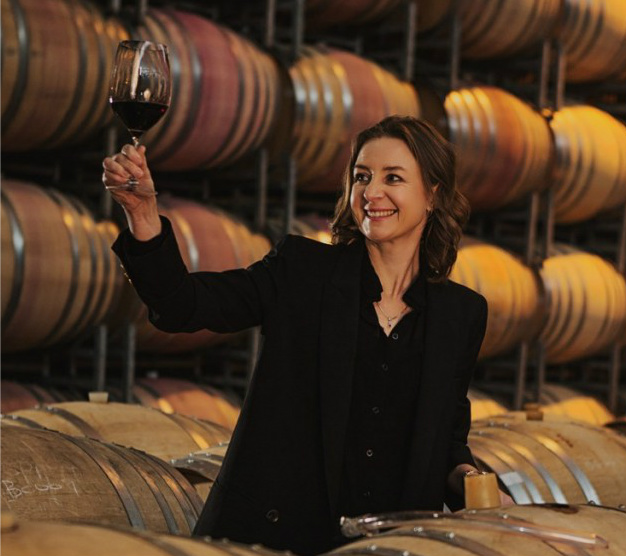Full name: Andrea Freeborough
Role: Nederburg cellar-master
DOB: 25 February, date not given
Birthplace: Zimbabwe
Twitter Handle: @Nederburg
Website: www.nederburg.com
Fun fact: “I am an avid reader – my weakness is for who-dunnits with the accent on forensics.”
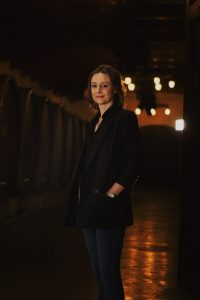
So let’s start at the beginning. You knew that you wanted to work with wine from the age of 14, you saw a picture of a vineyard in a magazine which inspired you. Could you tell us a little bit about your formative years? Did you come from a winemaking family? You briefly considered studying piano at one point, right?
I grew up in East London, a small town situated on South Africa’s east coast. I attended an all girls’ school where I was a keen sportswoman, but I also thoroughly enjoyed playing the piano, so I briefly considered studying music with the idea of becoming a teacher.
As far as agriculture is concerned, East London mainly had pineapple and dairy farms. There wasn’t a big wine culture or following in those days and my parents rarely drank wine, so it really was that beautiful picture of vineyards in a magazine that informed my career. Following a trip to the Cape Winelands on a family holiday the next year, the decision was made that I would definitely enter the agricultural sector and I haven’t looked back since.
In the end, you actually ended up studying for two BSc hons degrees – one in viticulture, the other in winemaking. Is that common, and did you do both of those at once? I’ve never seen that before.
I studied viticulture and oenology at Stellenbosch University. On graduating, I thought I wanted to work in the vineyards, so the next obvious step was to complete an Honours degree in Viticulture. But after spending a harvesting season in the Adam Tas Cellar (then known as SFW and today part of Distell), I realised that I wanted to be a winemaker.
However, since one cannot make good wine without good vineyard material, I decided to complete the Honours in Viticulture and subsequently enrolled for an Honours degree in Oenology the following year. It isn’t that common to complete both degrees, but I am not the only person in the wine industry to have done this. In hindsight, this greater understanding of both areas has served me very well.
I read somewhere that you said your favourite wines to make and to drink are Sauvignon blanc and Shiraz. Could you tell us why?
Given South Africa’s unique and varied terroir, the styles of Sauvignon blanc and Shiraz that we are able to make are remarkable. The opportunity to source grapes from the best vineyards for specific varieties, gives Nederburg a distinct edge in producing wines that are full, complex and display a sense of place.
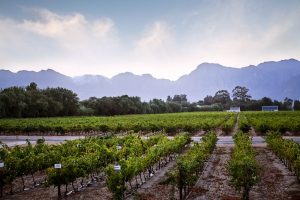
A lot of our super premium Sauvignon blanc fruit comes from cool climate vineyards, offering lovely green pepper and asparagus notes. We then blend these with wines made from Sauvignon blanc from other areas, giving us tropical fruit nuances. I find this style of Sauvignon blanc very appealing and enjoy the freshness that a slightly higher acid level offers, especially on a really warm South African summer’s day.
I am starting to enjoy Chenin blanc more and more. I think South African wineries are currently producing some exceptional Chenin blancs, made in a variety of different styles. I am really excited about the future of this varietal.
As far as Shiraz is concerned, I am particularly fond of Shiraz produced from warmer sites. I enjoy the dark berry notes and spicy notes that South African Shiraz offers, without being overripe and jammy. A lot of traditional South African food dishes have a somewhat spicy element to them, and since these are the types of dishes we enjoy as a family, I find Shiraz a great go-to wine.
You ‘assumed the mantle’ from Razvan Macici – what did you learn working with him?
Razvan loved to try new things. His passion for pushing the boundaries in terms of creating new wines and styles was contagious. Nederburg is known for being innovative, and we are currently continuing this tradition with several new projects under development. Watch this space!
What’s a ‘day in your life’ like? Could you give us an insight into the wine business?
No two days are ever the same. During harvesting season, which runs from January to the end of March/beginning of April, I spend seven days a week at the cellar. But I do work very closely with a remarkable team of winemakers, so between us, we are able to get through the enormous workload that this time of year presents.
After harvesting season, deciding which wines to use in our different blends across our different product tiers becomes a priority. These would normally include older vintages of red wines that have been maturing in the cellar and the first of the new vintage white wines, followed by the more accessible red wines of the current vintage.
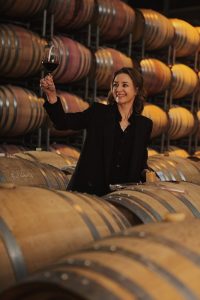
Since we have a large product portfolio, I do spend time each day doing some tasting, even if it is just to decide what fining to add to a finished blend. No blends or additions are made according to recipes – we trial everything in our tasting lab first. The same applies to the type of oak we select for each and every batch of wine that is fermented. This is a huge job, but very much worth the effort.
When I am not busy tasting and blending, I am very involved in the management of the budget as well as staff management and development, and other administrative tasks.
I also get to travel internationally three to five times a year to meet agents, customers and consumers, so I almost always have a really full but exciting schedule.
What’s your greatest/most memorable professional moment been, so far?
Being asked to return to Nederburg as cellar-master in 2015 is most certainly a highlight. Nederburg is a phenomenal, esteemed brand! It is an absolute privilege to be able to make wine for one of South Africa’s most recognized and awarded wine brands.
Where do you get your ideas?
Ideas come from a variety of sources. Nederburg is known for being innovative so a lot of what we do is based on continuous experimentation. We decide on a set of experiments we would like to try each year and record our results. We taste every tank every day during fermentation and identify different opportunities which we then try out. I am a firm believer of trusting your gut instinct and running with ideas that just naturally present themselves.
We also work very closely with our marketing offices in various countries. Since they are a lot closer aligned to specific market requirements and trends, we sometimes get interesting ideas from them.
What’s your philosophy, summed up in a sentence?
As far as winemaking is concerned: Trust your gut instinct.
As far as enjoying wine is concerned: Wine is a lifestyle – enjoy a glass or two every day (in a responsible manner).
What’s the biggest challenge you’ve had, how did you overcome it, and what did you learn from it?
I prefer to regard challenges as opportunities. Having sufficient time to get through a very tight and busy schedule, as well as making time for my family, is something that I am working on at the moment.

Who’s the person who’s most inspired you in your work – food industry or otherwise? Is there anyone that you draw inspiration or strength from? Do you have any specific influences?
Legendary winemaker Günter Brözel, who was cellar-master at Nederburg for 33 years, from 1956 to 1989. He played a leading role in building Nederburg’s reputation as one of the most awarded wineries in South Africa. He is known for his exceptionally high standards. In 1985, he became the first in South Africa to earn the International Wine & Spirit Competition Winemaker of the Year Award.
He was a great pioneer and created the first South African botrytised noble late harvest wine, Edelkeur, which was launched at the first Nederburg Auction in 1975 and to this day is sold exclusively through this channel. He is an icon in South African winemaking and has been a major source of inspiration for me. Today, Nederburg is still regarded as one of the most successful South African producers of noble late harvest wines.
Günter still visits Nederburg from time to time. His passion for Nederburg, winemaking and quality production is still so evident, even after all these years. I find that inspiring!
Nederburg’s The Motorcycle Marvel, a Rhône-style blend that forms part of our Heritage Heroes collection, pays tribute to Günter. During his years at Nederburg, he used to get around on a 250cc BSA motorcycle, checking on everyone and everything to ensure his exacting demands were met. Hence the name ‘The Motorcycle Marvel’.
What do you enjoy most and least about what you do?
Blending has to be my favourite part of the job. Since we have such a varied product portfolio, we blend throughout the year. Being able to taste and experiment with all our wine components (tanks, barrels etc) for a specific wine, and then producing a wine that is superior in quality and balance to the individual components it’s made up of, is what really excites me.
Providing our customers and worldwide consumer base with wines that are enjoyable, we need to ensure that our wines and production methods meet very stringent quality management requirements. Since some countries have very specific requirements, a huge amount of time is spent ensuring that these necessities are adhered to.
That is actually the easy part, but the completion of all the forms and documentation is what I least enjoy. In other words, the admin! Fortunately, we function very much as a team at Nederburg, so we do get some assistance from other departments in this regard.
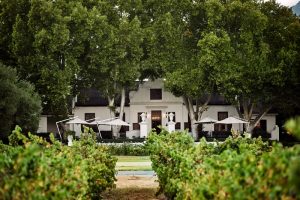
What advice would you give to aspiring winemakers who’d want the kind of results that you’ve had?
Get the basics right, pay attention to detail throughout the production process and trust your gut instinct. Don’t be scared to try new things and have fun while you do it. We all make mistakes – regard it as the best way to learn and improve.
If you weren’t doing what you do now, what would you be doing instead?
At some stage, as you know, I thought of becoming a music teacher. But I also wouldn’t mind to spend my mornings working in my garden and playing taxi to my two children in the afternoon.
If you could get anyone to try your wine (fictional or real, living or dead) who would you pick and which of the wines would you like them to try? Assume that they go on to be your brand ambassador…
Anyone and everyone who doesn’t currently drink wine! I believe that word of mouth is an excellent form of marketing.
I would suggest they try various wines from Nederburg’s multi-tiered range to find those wines that specifically appeal in terms of taste preference, occasion and price point. I regard wine preference as subjective and personal. What works for one person, doesn’t necessarily work for others.
What’s your ultimate aim and goal for Nederburg and your career? If you could achieve anything with it, what would you pick? Money and reality are no obstacle, so shoot for the moon…
Nederburg is a very long-established name in wine with an extraordinary lineage. If you look at what underpins that, you’ll discover an appetite for innovation, backed by very rigorous disciplines. My goal for Nederburg and my own career is to keep innovating, experimenting, and finding new ways to better our best efforts.
To keep producing interesting wines of exceptional quality that appeal to a worldwide consumer base and to see Nederburg’s worldwide visibility increase. We’ve come a long way, but there’s still a lengthy road ahead.
Where or what next for you?
As I have only been back at Nederburg for just over two years, I would like to remain in my current position for now. There are so many exciting changes happening with the brand at the moment and I am thoroughly enjoying being part of this journey.
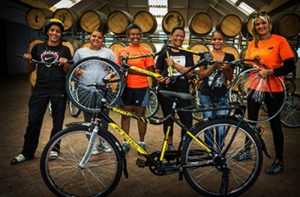
And we always ask three customary ridiculous questions…
If you had a day to spend in the life and body of your seven-year-old self (but with your current experience and mindset), what would the first three things you would do?
Invest my money from age seven. Compound interest is apparently the eighth wonder of the world!
If you could swap lives for the day with any fictional character (and you’d be guaranteed to return to your life after 24 hours), who would you choose, and why?
Amy from the television programme, The Big Bang Theory. Is Sheldon really that crazy and high maintenance? Maybe I would appreciate my husband more.
If you had to become some kind of vegetable related superhero, which would you become, and what would your superpower be?
Bravo Broccolli, that tastes like sweets. My superpower would be to get my daughter to eat green vegetables.
